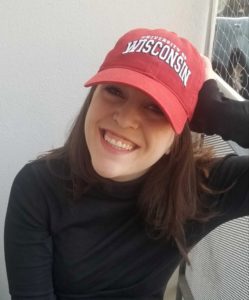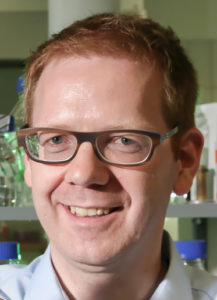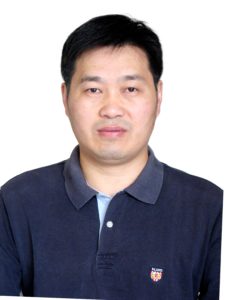To further thank and recognise the support from our excellent reviewer community, we are highlighting reviewers who have provided exceptional support to the journal over the past year.
This month, we’ll be highlighting Professor Rose Cersonsky, Professor Christian Heinis and Professor Bing Yang. We asked our reviewers a few questions about what they enjoy about reviewing, and their thoughts on how to provide a useful review.
Professor Rose Cersonsky, University of Wisconsin – Madison. My group uses molecular simulation and machine learning to understand and design behavior in multiscale and complex materials systems. Additionally, we strive to provide high-quality, open-source software, including the python package scikit-matter, a scikit-learn-affiliated and compatible software suite focused on machine-learning methods with additional nuance in chemical science.
Professor Christian Heinis, Ecole Polytechnique Federal de Lausanne (EPFL). My laboratory is developing new methods for the creation of cyclic peptide-based therapeutics. In recent years, we have begun to address the long-standing goal of developing target-specific peptides that are membrane-permeable and/or orally available.
Professor Bing Yang, Jilin University. Bing is engaged in the research of organic optoelectronic functional materials, such as organic electroluminescent materials, supramolecular optoelectronic functional materials, stimulus-responsive smart materials, etc.
What encouraged you to review for Chemical Science?
Professor Rose Cersonsky: Generally, I find the science within Chemical Science to be high-quality, and enjoy the topic areas it covers. I aim to be a responsible scientific steward by reviewing, as it upholds the quality and rigor of our field.
Professor Christian Heinis: Chemical Science is a top chemistry journal and manuscripts tend to report new, innovative work that is a pleasure to read.
Professor Bing Yang: Chemical Science is my favorite journal, because it does a great job in terms of scientific taste and originality, so peer review process provides me with a valuable communication platform that I greatly appreciate.
What do you enjoy most about reviewing?
Professor Rose Cersonsky: I treat every review as if I’m speaking to the (likely) graduate student who wrote the paper, and try to highlight the aspects of the work that were well-done or interesting, while providing constructive feedback, even in the case of rejecting a paper, to improve the study or its impact.
Professor Bing Yang: I most enjoy reviewing the manuscripts that have a major breakthroughs in terms of innovation, uniqueness and subversion, which is a feeling of meeting each other too late.
What makes a paper truly stand out for you when reviewing a paper?
Professor Christian Heinis: Papers that report answers to important scientific questions or solutions to long-standing challenges. Papers also attract my attention if the work is particularly creative or unconventional, or if the results are unexpected.
Professor Bing Yang: The most important thing for a paper that truly stands out is its scientific novelty, including new discoveries, new structures, new principles, new concepts, new functions, and new methods, which are well supported by systematic experiments and reliable theories.
What are you looking for in a paper that you can recommend for acceptance in Chemical Science?
Professor Rose Cersonsky: I look for a paper that has something unique to say in the context of chemical science, wherein the authors have done due-diligence in their scientific arguments and reporting.
Did reviewing for Chemical Science affect how you approached preparation of your recent publication with us?
Professor Bing Yang: Yes, absolutely. Reviewers can use other people’s manuscripts as a “mirror” to reflect our own strengths and weaknesses.
How do you balance reviewing with your other activities?
Professor Christian Heinis: I commute from Bern to Lausanne and often read and review papers on the train. I then stop reviewing activities when I arrive at work or at home.
What has been your biggest learning point from reviewing?
Professor Rose Cersonsky: It’s not my job to fix everything in a paper — early on in reviewing, I would write 2-3 treatises noting every typo and place of improvement. Now, I try to provide holistic reviews that focus on the points of largest concern for the author.
Tune in next month to meet our next group of #ChemSciReviewers!
If you want to learn more about how we support our reviewers, check out our Reviewer Hub.
Interested in joining our ever-growing reviewer community? Apply here now!













